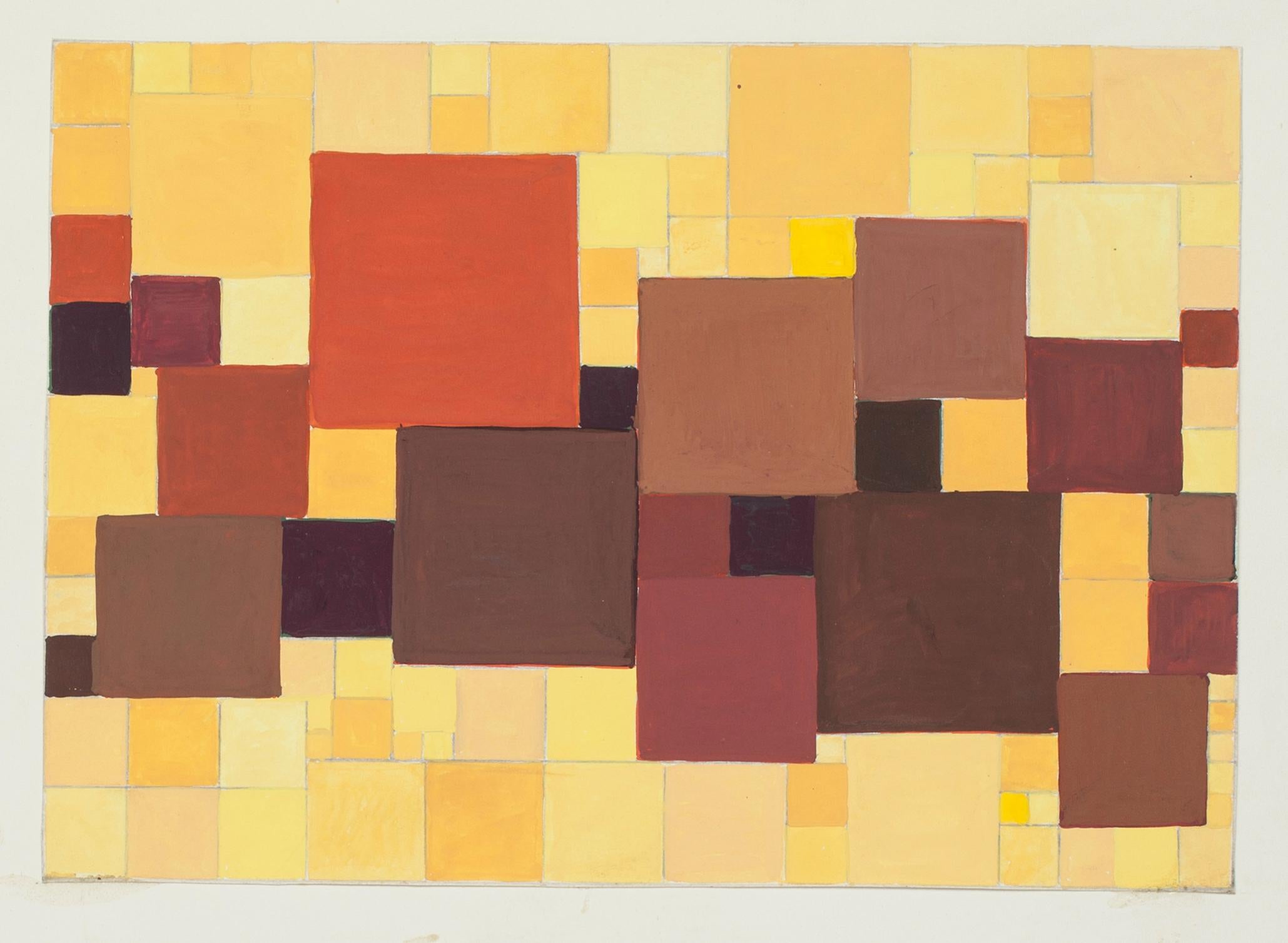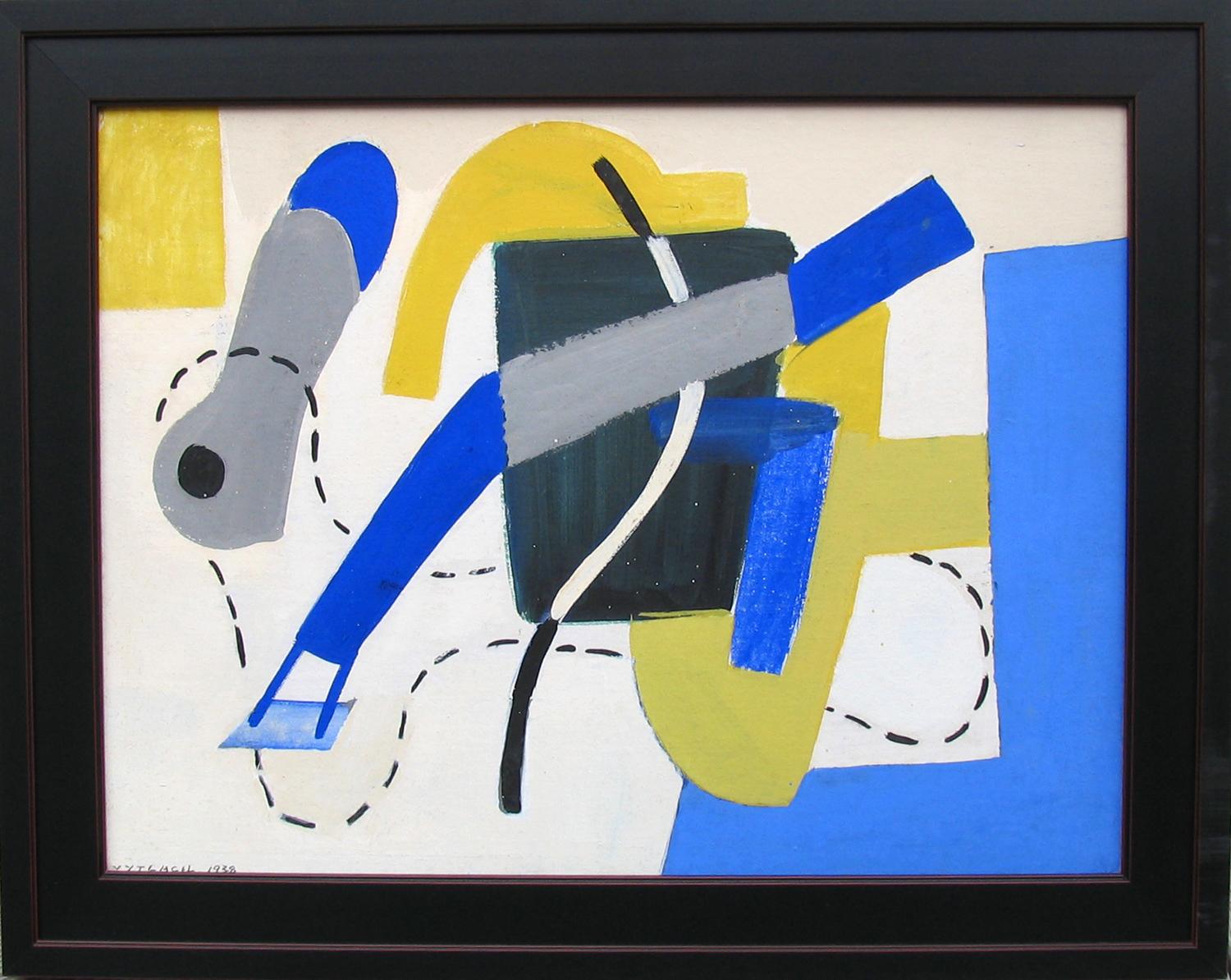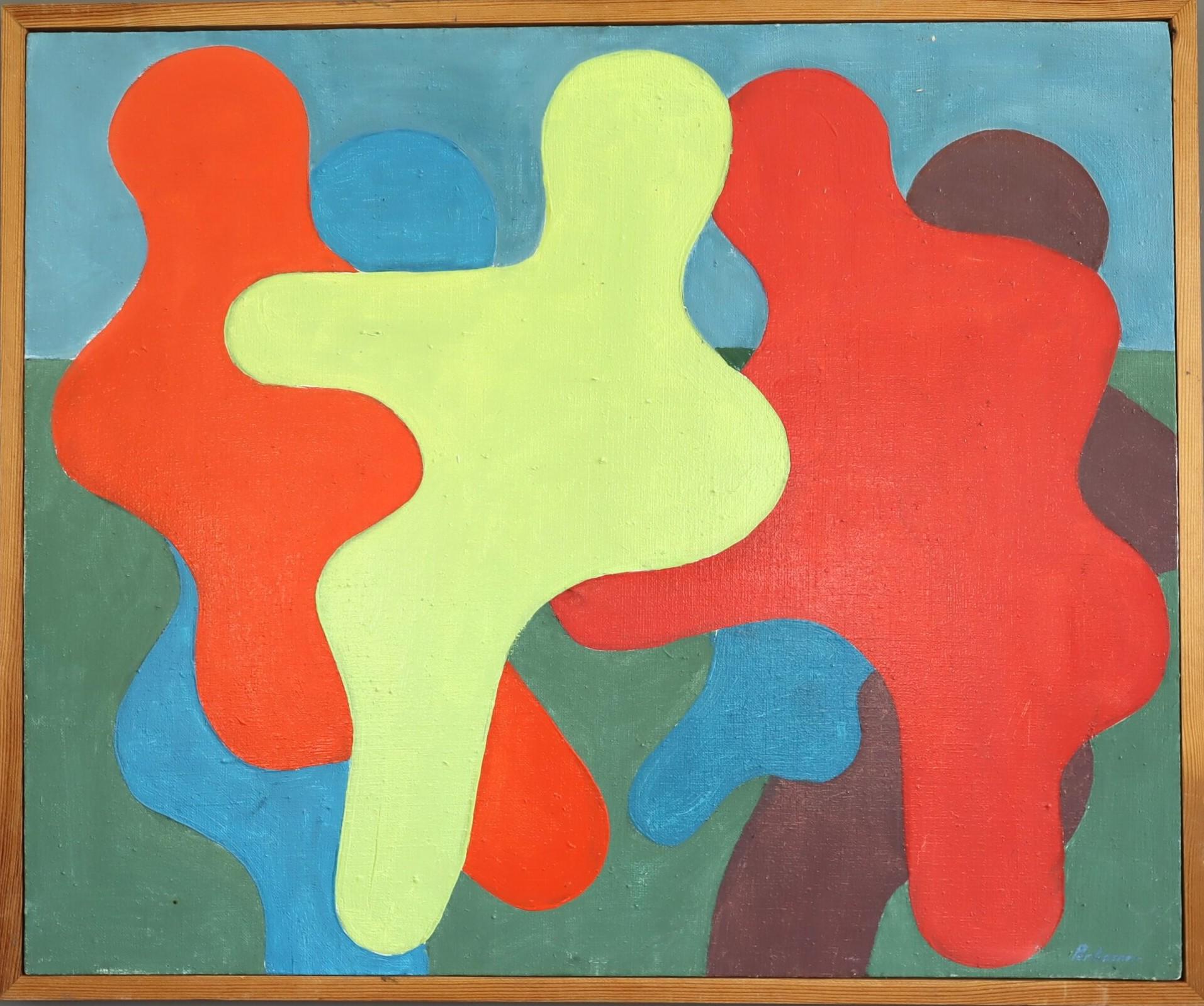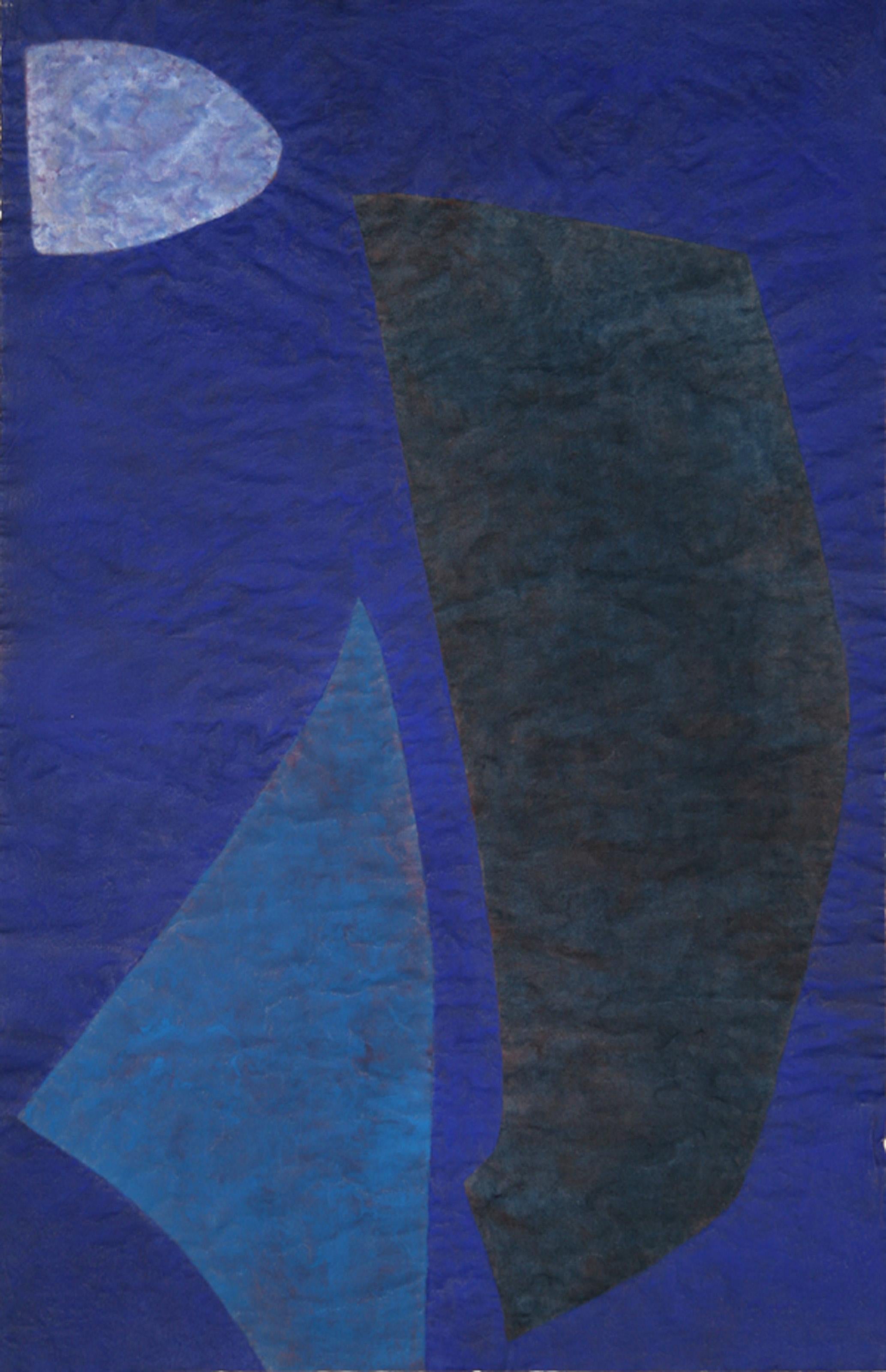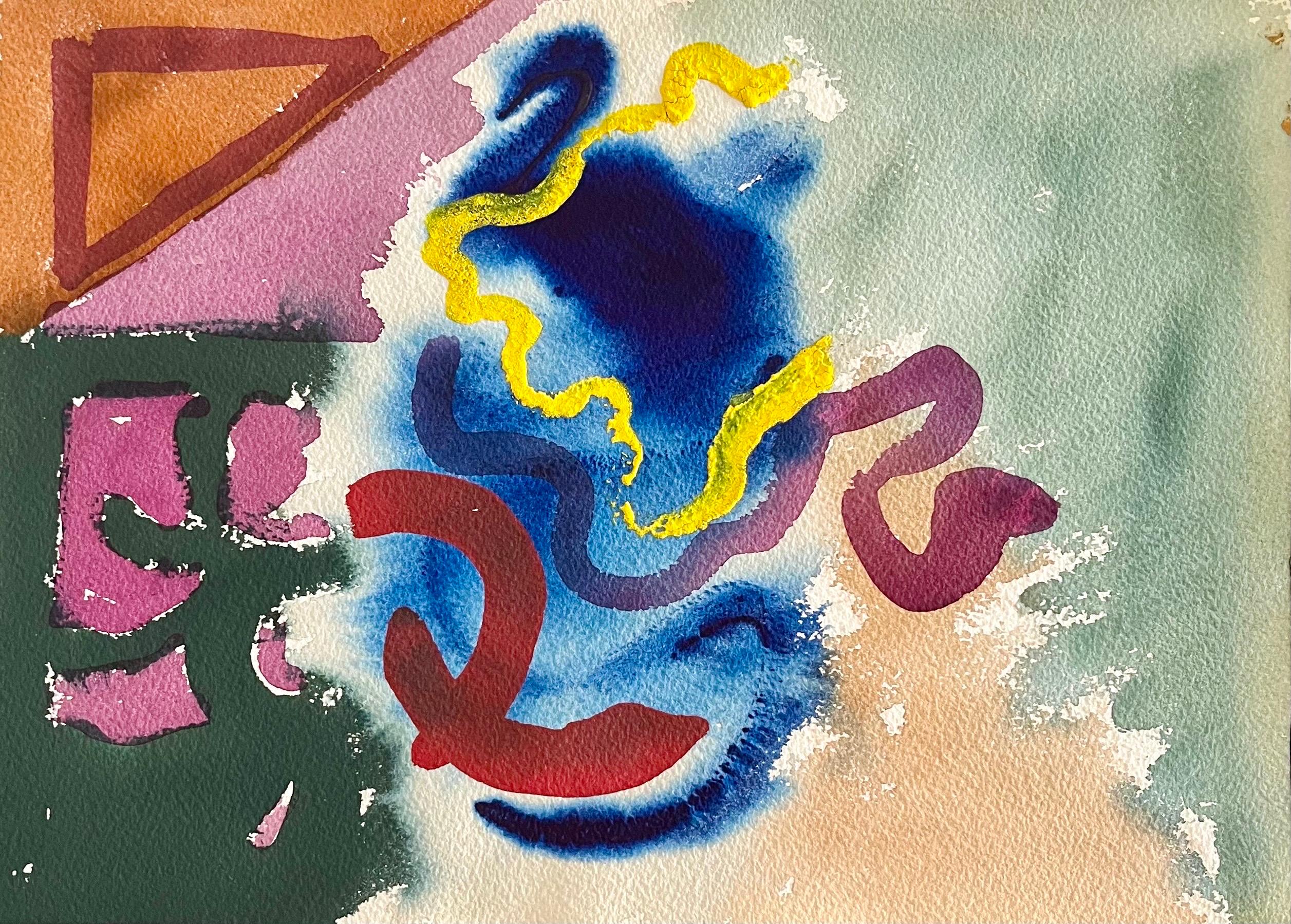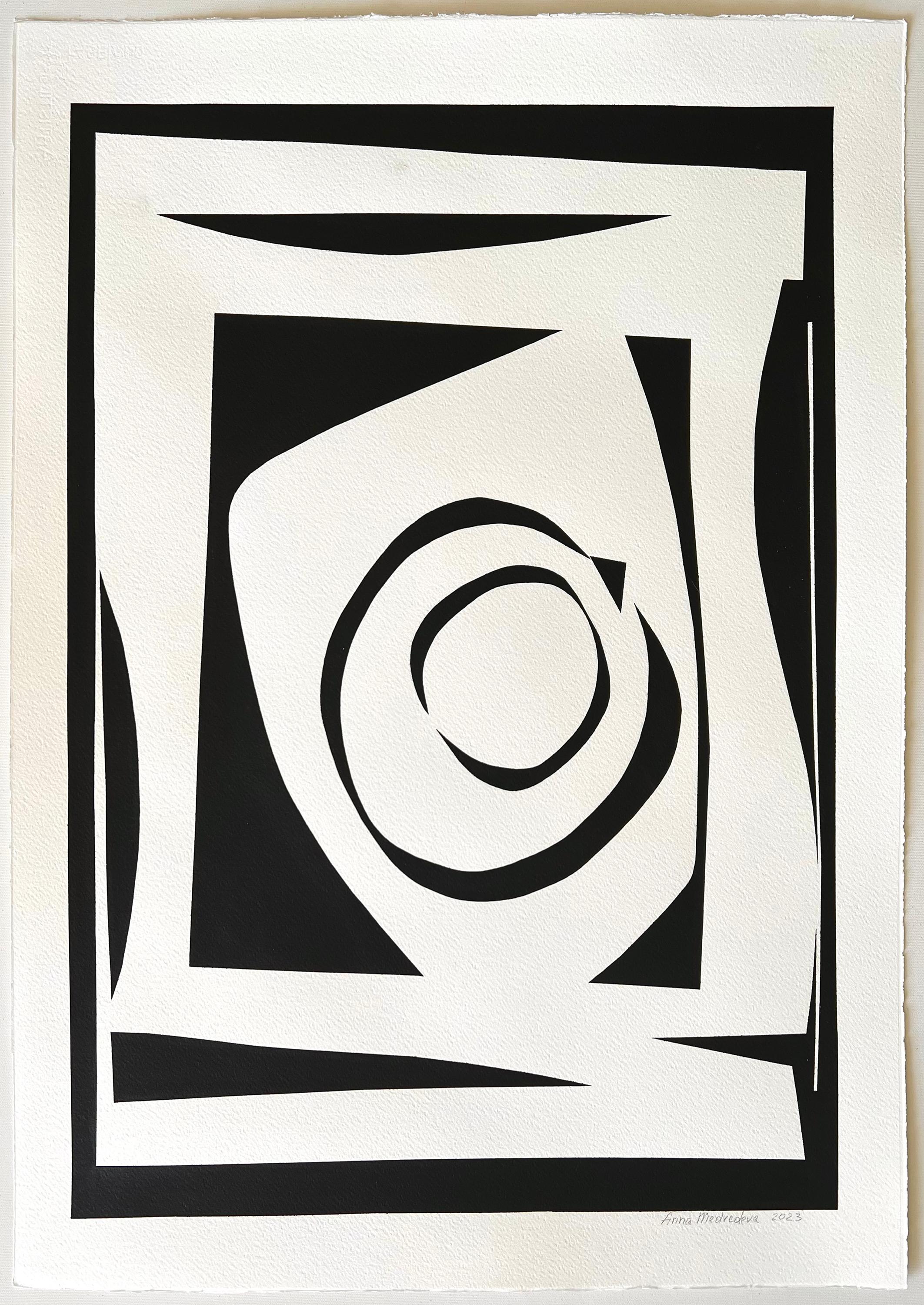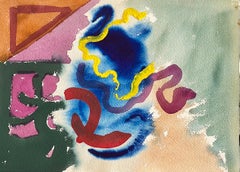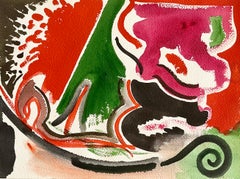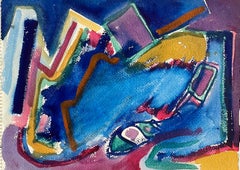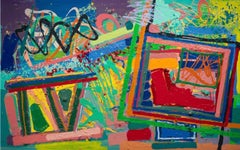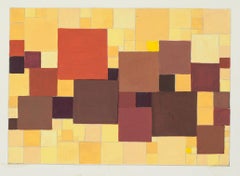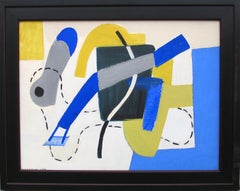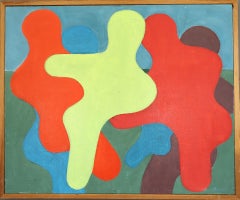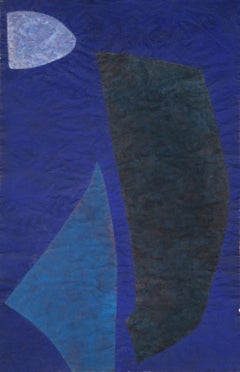Items Similar to Abstract Composition Tempera Painting Russian Soviet Avant Garde Ksenia Ender
Want more images or videos?
Request additional images or videos from the seller
1 of 10
Ksenia EnderAbstract Composition Tempera Painting Russian Soviet Avant Garde Ksenia Ender
$5,500
£4,192.63
€4,789.76
CA$7,739.28
A$8,476.91
CHF 4,463.09
MX$101,169.06
NOK 56,878.11
SEK 51,995.16
DKK 35,792.36
About the Item
Dimensions:
25.5 X 20.5 Frame. Artwork measures 23.25 X 18.25
Tempera painting
Signed by the artist, lower right corner
Ksenia Vladimirovna Ender ( Russian Ксения Владимировна Эндер , also Xenia Ender and Kseniia Ender. born 1895 in Sluzk , died 1955 in Leningrad ) was a Russian painter of German descent.
Ksenija Ender was the daughter of a gardener of German descent. Her great-grandfather was a Saxon glassmaker who had settled in St. Petersburg. Like her siblings Boris (1893-1960), Marija (1897-1942) and Yuri (1898-1963), she attended the Petrischule in St. Petersburg , showed strong artistic inclinations and was very interested in music, poetry and theater.
Ksenija Ender studied from 1918 to 1922 in Petrograd in the workshop of the Realism of the Free Artistic Workshops (SWOMAS) (successor organization of the Imperial Academy of Arts ) with Mikhail Vasilyevich Matyushin , in whose avant-garde Sorwed (see and guide) group they entered as well as their siblings Boris and Maria. From 1920 to 1922 she took part in events in memory of Jelena Genrichovna Guro . From 1923 to 1926 she worked as a research assistant in the Department of Organic Culture of the State Institute for Artistic Culture and experimented with space and colors under the influence of Matuskin. Some of her works were shown in 1923 at the painting exhibition Petrograd painters of all directions and in 1924 at the Fourteenth Biennale di Venezia .
From the 1930s Ksenija Ender worked as a designer in an industrial construction office.
The Ender sisters, Maria (1897, St Petersburg — 1942, Leningrad) and Ksenia (1894, Slutsk — 1955, Leningrad) studied from 1918 to 1922 at the Petrograd State Free Art Workshops of Mikhail Matiushin in the Spatial Realism department, and worked in the department of organic culture at GINKhUK (the State Institute of Artistic Culture) also under the direction of Matiushin, Maria from 1923 to 1926 and Ksenia 1923 to 1924. Mikhail Matiushin was an artist, musician, composer, art re- searcher, one of the leading lights of the Russian avant-garde and inventor of the theory of “broadened observation”. In the depart- ment of organic culture at GINKhUK a group of artists, Matiushin’s students, formed an association which they called ZOR-VED (an abbreviation of the words ‘seeing’ and ‘knowing’). Matiushin spoke of a new truth existing in art, a non-figurative figuration. “Figures do not leave the field of vision, they just change into a new form.”
For the artists of the avant-garde, the concept of realism did not mean copying nature. It was no accident that the word “realism” acquired the attribute “spatial”. It became synonymous with a new idea of the universe, of connections with nature. The group’s investigations were mainly concentrated on the problem of the perception of colour in space, of the influence of colour on form and on the connections between colour and sound. The Ender sisters were active participants.
Maria Ender conducted an independent project researching colour, ran the department researching the use of peripheral perception of colour and form and gave 24 lectures at the department’s meetings. She prepared for publication the articles The Laws of Reproduction of Colour Form, Chevreul’s Law of Simultaneous Contrast and Its Relationship to the Principle of Broadened Observation, Colour and Colour Combining, Space and Form and On Supplementary Form. She taught colour studies at the State Art and Industry Technical College (1930), and at the Leningrad Institute of Proletarian Visual Arts (1930–1932). Maria Ender actively collaborated with Matiushin in preparing a colour handbook for publication in 1932. She took part in designing the Soviet pavilion at the World Exposition in Paris in 1937 and the World’s Fair in New York in 1939.
Ksenia also wrote reports at the Institute on various subjects. From 1925 to 1927 she worked as a scientific collaborator at the Decorative Institute. Due to poor health she gave up painting early on and in the 1930s worked as a designer in an engineer’s office. Both sisters participated in the Exhibition of Pictures by Petrograd Artists of All Movements in Petrograd in 1923, and in the 14th Venice Biennale International Art Exhibition in 1924. Landscapes occupy a major place in the oeuvre of Ksenia Ender and it is in these that she uses her experience in “broadened observation”: the purification of light and the revelation of its luminescence, the colour-form connection with the surroundings through “interlinking” colour. The artist highlights simple colour forms which create a slightly slowed-down, peaceful compositional rhythm. Maria Ender was one of the leading theoreticians of the new spatial realism. Her compositions were more dynamic, complex and delicate in their colour characteristics. By finding the graphic “formulae” of objects in nature, stripping all detail, all unnecessary features from their depictions, both artists preserved a connection with the natural origin.
For the artists of the avant-garde, the concept of realism did not mean copying nature. It was no accident that the word “realism” acquired the attribute “spatial”. It became synonymous with a new idea of the universe, of connections with nature. The group’s investigations were mainly concentrated on the problem of the perception of colour in space, of the influence of colour on form and on the connections between colour and sound. The Ender sisters were active participants.
Maria Ender actively collaborated with Matiushin in preparing a colour handbook for publication in 1932. She took part in designing the Soviet pavilion at the World Exposition in Paris in 1937 and the World’s Fair in New York in 1939.
Ksenia also wrote reports at the Institute on various subjects. From 1925 to 1927 she worked as a scientific collaborator at the Decorative Institute. Due to poor health she gave up painting early on and in the 1930s worked as a designer in an engineer’s office. Both sisters participated in the Exhibition of Pictures by Petrograd Artists of All Movements in Petrograd in 1923, and in the 14th Venice Biennale International Art Exhibition in 1924. Landscapes occupy a major place in the oeuvre of Ksenia Ender and it is in these that she uses her experience in “broadened observation”: the purification of light and the revelation of its luminescence, the colour-form connection with the surroundings through “interlinking” colour. The artist highlights simple colour forms which create a slightly slowed-down, peaceful compositional rhythm. Maria Ender was one of the leading theoreticians of the new spatial realism. Her compositions were more dynamic, complex and delicate in their colour characteristics. By finding the graphic “formulae” of objects in nature, stripping all detail, all unnecessary features from their depictions, both artists preserved a connection with the natural origin.
Liudmila Vostretsova, The State Russian Museum, St Petersburg
- Creator:Ksenia Ender (1895 - 1955, Russian)
- Dimensions:Height: 25.5 in (64.77 cm)Width: 20.5 in (52.07 cm)
- Medium:
- Movement & Style:
- Period:
- Condition:Creases to lower edge of paper. Please see photos. otherwise good. in original frame. frame has some minor loss at corners.
- Gallery Location:Surfside, FL
- Reference Number:1stDibs: LU38212801062
About the Seller
4.9
Platinum Seller
Premium sellers with a 4.7+ rating and 24-hour response times
Established in 1995
1stDibs seller since 2014
1,846 sales on 1stDibs
Typical response time: 1 hour
- ShippingRetrieving quote...Shipping from: Surfside, FL
- Return Policy
More From This Seller
View AllMod Abstract Expressionist Modernist Edward Avedisian Color Field Art Gouache
By Edward Avedisian
Located in Surfside, FL
Edward Avedisian Gouache Watercolor Abstract Painting on Arches paper. (notebook cover not included)
Unsigned, (bears name verso in pencil.)
Dimensions: 10" X 14"
Late 1970s, early ...
Category
1970s Abstract Expressionist Abstract Paintings
Materials
Watercolor, Gouache
Mod Abstract Expressionist Modernist Edward Avedisian Color Field Art Gouache
By Edward Avedisian
Located in Surfside, FL
Edward Avedisian Gouache Watercolor Abstract Painting on Arches paper. (notebook cover not included)
Unsigned, (bears name verso in pencil.)
Dimensions: 10" X 14"
Late 1970s, early 1...
Category
1970s Abstract Expressionist Abstract Paintings
Materials
Watercolor, Gouache
Mod Abstract Expressionist Modernist Edward Avedisian Color Field Art Gouache
By Edward Avedisian
Located in Surfside, FL
Edward Avedisian Gouache Watercolor Abstract Painting on Arches paper. (notebook cover not included)
Unsigned, (bears name verso in pencil.)
Dimensions: 10" X 14"
Late 1970s, early 1...
Category
1970s Abstract Expressionist Abstract Paintings
Materials
Watercolor, Gouache
Large Mod Abstract Expressionist Modernist Edward Avedisian Color Field Painting
By Edward Avedisian
Located in Surfside, FL
Edward Avedisian (American, 1936-2007)
Abstract Large Painting
Acrylic on panel heavily textured with a 3D effect.
Dimensions: 48"h x 75"w
Circa late 1970s, early 1980s
Provenance: ...
Category
1970s Abstract Expressionist Abstract Paintings
Materials
Acrylic, Wood Panel
Mandala Judaica Post Soviet Russian Avant Garde Israeli Leviathan Group Painting
By Shmuel Ackerman
Located in Surfside, FL
Shmuel Ackerman, (Shmuel Akkerman), Israeli, born 1951, Soviet Union, active in Israel and France.
Shmuel Ackerman was born in Ukraine to a religious family. In 1973, he immigrated to Israel and settled in Jerusalem. From his earliest work, he created abstract symbolist art influenced by folkloristic motifs and modern Western art...
Category
20th Century Contemporary Abstract Paintings
Materials
Paper, Acrylic
Mod Abstract Expressionist Modernist Edward Avedisian Color Field Art Gouache
By Edward Avedisian
Located in Surfside, FL
Edward Avedisian Gouache Watercolor Abstract Painting on Arches paper. (notebook cover not included)
Unsigned, (bears name verso in pencil.)
Dimensions: 10" X 14"
Late 1970s, early 1...
Category
1970s Abstract Expressionist Abstract Paintings
Materials
Watercolor, Gouache
You May Also Like
Abstract Composition - Original Tempera by A. Matheos
By Alkis Matheos
Located in Roma, IT
Composition is a beautiful original painting in tempera applied on cream-colored paper, realized at the beginning of XX century by the Greek-French artist Mathéos Alkis, Signed on lo...
Category
Mid-20th Century Contemporary Abstract Paintings
Materials
Tempera
Untitled Abstraction-008 casein tempera on board by Vaclav Vytlacil
By Vaclav Vytlacil
Located in Hudson, NY
Signed and dated "Vytlacil 38" lower left, and signed and dated verso.
Provenance: Estate of the artist #1602; Martin Diamond Fine Art
About this artist: Born in 1892 to Czechoslov...
Category
1930s Abstract Expressionist Abstract Paintings
Materials
Tempera, Casein, Board
1991 Modern Vintage Swedish Geometric Abstract Tempera Painting - Interaction
Located in Bristol, GB
INTERACTION
Size: 64 x 76.5 cm (including frame)
Tempera on canvas
A vibrant geometric abstract composition that explores form and interaction, executed in tempera onto canvas and d...
Category
1990s Abstract Abstract Paintings
Materials
Canvas, Tempera
6C, Modern Abstract Tempera Painting by Yasmin Brandolini
By Yasmin Brandolini d'Adda
Located in Long Island City, NY
A large minimal abstract painting on paper by Yasmin Brandolini.
Artist: Yasmin Brandolini d'Adda, South African/Italian (1929 - )
Title: 6C
Year: 1984
Medium: Tempera on Paper, sig...
Category
1980s Abstract Geometric Abstract Drawings and Watercolors
Materials
Tempera
Abstract Composition 32
Located in King, ON
This abstract painting from series “Geoforms” is inspired by minimalism, modern art and hard edge.
This work is signed, dated and tilted by Artist on the back. Signed certificate of ...
Category
2010s Abstract Abstract Paintings
Materials
Paper, Acrylic, Cardboard
Abstraction (Untitled)
Located in Los Angeles, CA
Abstraction (Untitled), c. 1930s, mixed media on board, signed lower right, 8 ¼ x 7 inches (image), 15 x 10 inches (board), Literature: Achieving Recognition, American Fine Art Magaz...
Category
1930s American Modern Mixed Media
Materials
Mixed Media, Board
More Ways To Browse
Soviet Art
Antique Tempera Painting
Antique Soviet
Antique Russian Paintings
Antique St Petersburg Russia
Dior 1955
Russian Paintings Soviet
Large Cubist Paintings
Paint By Number
Red Gold Acrylic Paintings
This End Up
Vintage Drip Painting
Abstract Metallic Painting
Anne Truitt
Gradient Acrylic
Hawaii Abstract Art
Primary Colors Painting
Richard Grey
